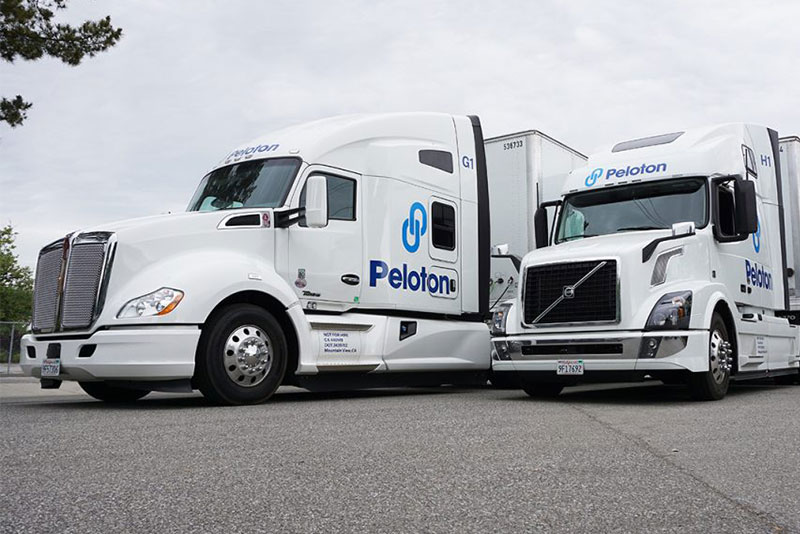
The founding story of Peloton Technology sounds like a Silicon Valley cliche.

Promising young engineer Josh Switkes graduates with a PhD from Stanford University. He uses his research to launch a startup. The company raises millions from venture capitalists.
But Peloton takes a significant detour from this timeworn tale thanks to the industry it’s trying to disrupt: trucking.
Two worlds that once seemed far part – Silicon Valley and trucking – have been colliding with growing frequency in recent years.
Nothing whets the valley’s appetite like a global, tradition-bound, inefficient industry worth billions of dollars that has struggled to embrace change. Thanks to rapid advances in technologies such as autonomous sensors and artificial intelligence, a growing number of entrepreneurs believe they have the tools to turn trucking upside down.
A look at Switkes’ journey from Stanford to starting Peloton to raising $78 million in venture capital illustrates how Silicon Valley’s attitudes toward trucking have evolved over the last decade and why companies like Peloton may be key to a revolution that fundamentally changes the trucking industry’s image.
“The public doesn’t think about trucks as important,” Switkes said. “Most of the time when the public interacts with trucks, it’s because the truck is in the way, or making a lot of noise, or spouting black smoke. They don’t realize how much stuff is still moved by trucks.”
Truck tech wasn’t on Switkes’ mind when he started working on his PhD in mechanical engineering. Though he had grown up in the Bay Area, Switkes attended Harvey Mudd College in Claremont. After graduating in 2001 and being accepted at Stanford, he returned to a Silicon Valley grappling with the economic chaos caused by the bursting of the first dot-com bubble.
Entrepreneurs were still focused on the opportunities that had been opened by the virtual markets of the Internet, but Switkes became interested in a far more physical challenge: lane-keeping assistance. That is, how to develop systems that help a driver and car stay in the center of a lane when a road is banked or uneven. Finding a solution involved engineering, of course, but also understanding how humans might react if a steering wheel moved on its own to correct a car’s trajectory.
In 2006, toward the end of his research program, he spent three months working for Volkswagen. The German company, like many of its automotive counterparts, was displaying a growing curiosity about Silicon Valley. That same year, the company opened the Volkswagen Electronics Research Lab in the valley, and Switkes jumped at the chance to join and continue his work.
Automotive tech was advancing, but talk of self-driving cars was still over the horizon. “Vehicle automation was not nearly the topic then that it is now,” he said.
After two years, Switkes felt the pull of the startup world. He was attracted by the idea of being part of a smaller company where he could have more impact. He joined Tula, a venture-backed startup focused on improving signal processing to engines to allow for greater efficiency and lower fuel consumption.
Until now, Switkes had mostly been thinking about cars.
“I was not a trucking guy at all,” he said. But by chance, he looked at some statistics around trucking and quickly discovered the numerous pain points that industry insiders knew all too well.
“I was blown away by the statistics about money spent on fuel, and labor costs, and crashes,” he said. “And I wrote that down because it really struck me.”
That started a gradual process of connecting dots. All around Silicon…

